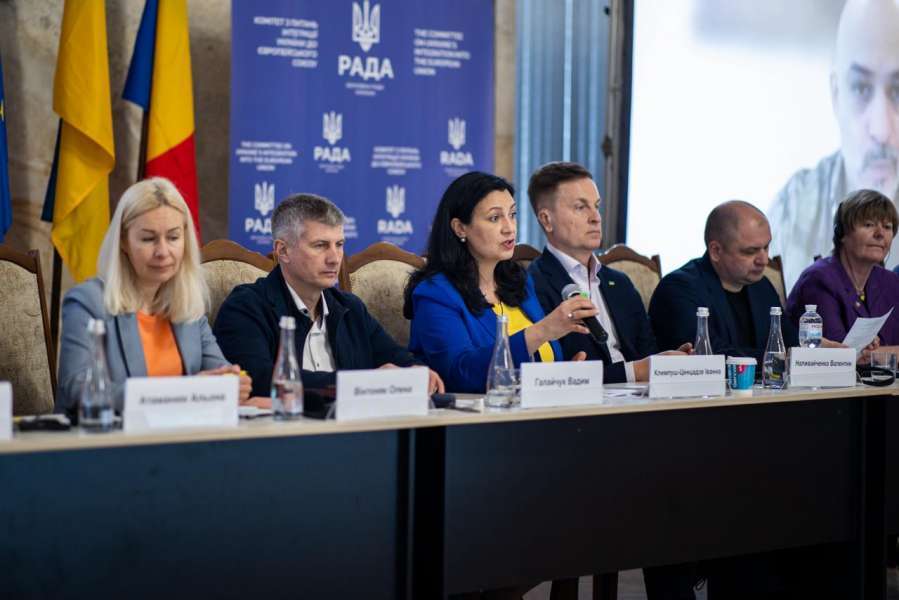During the final press conference on the results of the offsite meeting of the Committee on Ukraine's Integration into the EU in Chernivtsi, Ivanna Klympush-Tsyntsadze noted that the change in the status of Ukraine on its way to the European Union, the change in opportunities in accordance with the strategic goals of Ukraine also affect the work of executive bodies, as well as the tasks facing the Verkhovna Rada of Ukraine, which forms the legislative framework for further progress towards the EU: “We are grateful to the representatives of the ministries who travelled with us and took a responsible attitude to participation in the meeting We have seen progress in the work of the Ukrainian-Romanian border in the Chernivtsi region, but at the same time we have once again seen challenges,” said the Committee Chair.
She added that the main conclusions of the Committee will relate to monitoring the further implementation of those pilot projects that partially offer solutions at the border. These include an electronic queue, the institution of an authorised economic operator, the introduction of the next level of the NCTS system used by the State Customs Service of Ukraine, and interaction with business structures to make the border not only safe and secure, but also more transparent, clear, protected from corruption risks and easier to cross for Ukrainian and foreign citizens.
According to Ivanna Klympush-Tsyntsadze, another part of the Committee's recommendations, based on the results of the working visit to the Ukrainian-Romanian border, will be to update the Integrated Border Management Strategy in view of the additional challenges Ukraine faces, additional opportunities and the prospect of EU membership. According to her, Ukraine is currently using only partially the indicators of integrated border management that are typical for EU countries. Therefore, they need to be expanded. “We need to focus on how the documents we already have today will be incorporated into our big EU Membership Negotiations Plan. When a decision is made to start negotiations, the first cluster of interaction and fulfilment of our obligations to the EU will be the so-called Fundamentals cluster. And this cluster, beyond rights, freedoms, balance of power, and the rule of law, will include a lot of work that will be done under the Justice, Freedom and Security section, which will concern all those institutions that participated in our meeting and are involved in the implementation of the Integrated Border Management Strategy,” Ivanna Klympush-Tsyntsadze said. She noted that there are many challenges. In particular, the technical support of the State Customs Service and the Border Guard Service to control the import and export of goods needs to be strengthened immediately.
“Because if there is no technical support for quality work, then no electronic queues, no improvements will help us maintain the trust of our European partners. We know what serious problems we have faced on the Ukrainian-Polish border and, obviously, it is important for us that there are no grounds for our Romanian colleagues to say that the quality of our inspection does not meet their needs and expectations. This is critically important for Ukraine, given that today land transport makes up the lion's share of our traffic with the EU,” summed up Ivanna Klympush-Tsyntsadze.
